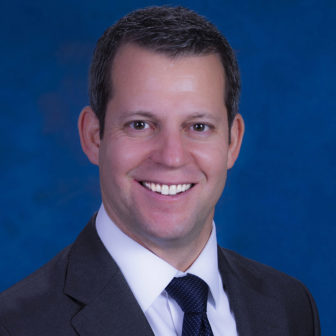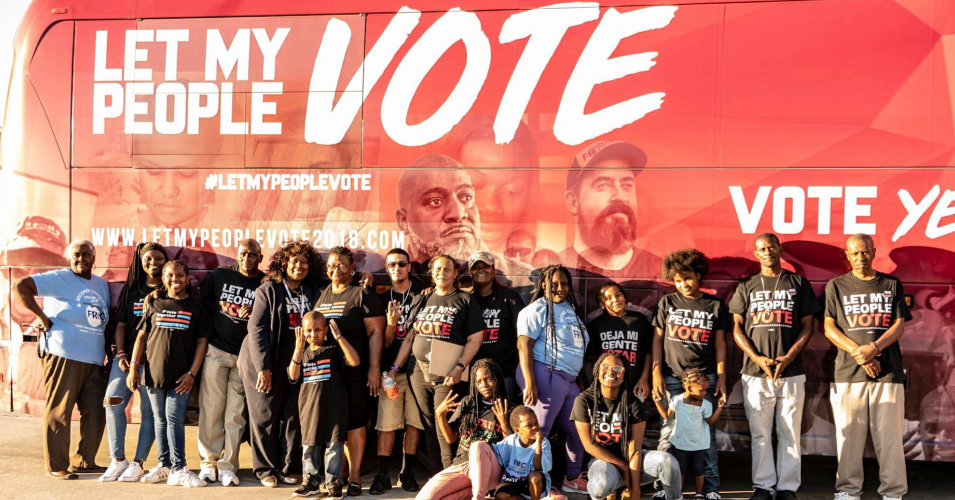Last November, Florida voters passed an amendment to the state constitution that automatically restores the right to vote to people convicted of felonies (except murderers and sex offenders) who have completed all terms of their sentence, including parole or probation.
But when the state legislature met this spring, it passed a bill, Senate Bill 7066, specifying that the ex-offenders pay back court costs and restitution first.

Tampa State Attorney Andrew Warren
Critics have called this requirement a “poll tax.” The ACLU is suing and hopes to overturn the law. Other groups are more focused on complying with it, by raising funds for ex-offenders to meet their obligations and providing legal advice. In Tampa, state attorney Andrew Warren is doing what he can to expedite the process: He has proposed a “rocket docket” to convert outstanding fines to community service.
Florida has a long history of denying former offenders the right to vote. It first did so three years after the Civil War ended, in 1868. in 2007, then-Gov. Charlie Crist revised the rules of executive clemency, restoring the vote to people who had completed sentences for certain felony convictions, affecting about 115,000 people.
When Rick Scott took over as governor, he reversed Crist’s reforms and added new hurdles: Under him, people with felony convictions had to wait five to seven years after completing their sentences, then come before Scott and his cabinet to ask for restoration of rights, which could still be denied. A federal judge ruled that system violated both the First and Fourteenth amendments of the U.S. Constitution, but that decision is being appealed; oral arguments are scheduled for July 25. In the meantime, groups organized to pass Amendment 4.
“I was one of the earliest supporters of Amendment Four,” said Warren, state attorney for Florida’s 13th judicial district, who is running for re-election in 2020. “I think I was one of only two state attorneys to come out in support of it. From the time before it was even voted on and passed overwhelmingly by Floridians, we were thinking about ways that we could implement it.”
The roadblock from the legislature did not come as a surprise: “We anticipated from the moment it was passed that there may be legislation on it,” Warren said. The new laws did not establish processes for identifying ex-offenders affected by them, nor for settling their fines and clearing them to vote. “So we are filling in that gap,” he said.
Warren’s office is working with his local public defender’s office, chief judge and clerk’s office, as well as the supervisor of elections, to set up a process that would be as glitch-free as possible. He says that so far, key officials are open to the process and he has not received any pushback. He hopes to develop a model that could be copied by other judicial districts so that the process is uniform around the state.
“We will find the resources to do this,” Warren said when asked if he had the budget and staff to work on it. “This is an important part of the mission of our office, to make sure that not only we're holding people accountable for their crimes and reducing recidivism and supporting victims, but also helping people transition back into the community to be law-abiding citizens.”
The ACLU’s lawsuit claims that the legislature’s restrictions are unconstitutional, violating the prohibition on poll taxes and the ex post facto clauses. “The ability to vote should not be based on the size of one’s bank account,” Daniel Tilley, legal director of the ACLU of Florida, said in a statement.
Legal experts have debated whether that argument will hold. Some point out that one of the attorneys supporting Amendment 4 had assured a state supreme court justice in testimony that it would require “the full payment of any fines.”
The Florida Rights Restoration Coalition, which led the effort to pass Amendment 4, started a crowdfunded account to pay the fees. It has raised $112,056 of a stated $3 million goal by Monday. Former state Rep. Sean Shaw said he did not think SB 7066 amounted to a poll tax, but questioned whether it comported with voters’ spirit in approving Amendment 4. He set up People Over Profits, a legal network that will advise former offenders through the vote-restoration process.
Florida Gov. Ron DeSantis, for his part, questioned why Amendment 4 dealt only with restoring the right to vote but not all civil rights such as the right to sit on a jury or hold elected office. He lamented that it had restored voting to violent felons such as kidnappers, without regard to victims. He signed SB 7066 into law in June.
This project was underwritten in part by The Vital Projects Fund.
